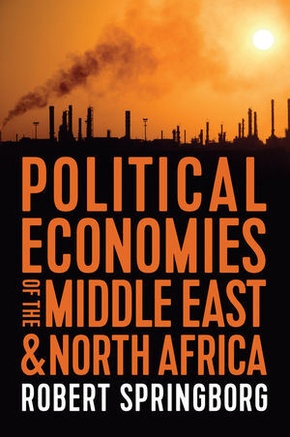
Political Economies of the Middle East and North Africa
| Verlag | Wiley & Sons |
| Auflage | 2020 |
| Seiten | 247 |
| Format | 22,9 cm |
| Gewicht | 416 g |
| Artikeltyp | Englisches Buch |
| EAN | 9781509535606 |
| Bestell-Nr | 50953560UA |
Despite its oil wealth, the Middle East and North Africa is economically stagnating. Growth rates are comparatively unfavorable and insufficient to substantially improve citizens' lives. Whether this economic inertia can be overcome or will continue into the indefinite future is a vital question that confronts both the region and the world.
In this book leading Middle East scholar Robert Springborg discusses the economic future of this region by examining the national and regional political causes of its contemporary underperformance. Overgrown, weak MENA states, he explains, have been unable to escape their unfavorable historical legacies. "Limited access orders" and the deep states based in the means of coercion that underpin them undermine state capacities and constrain beneficial, autonomous political and economic activity. Increasingly challenged by their populations, MENA states face the daunting and so far unmet challenge of diversifying non-sustainable, rentier politica l economies away from direct or indirect dependence on oil and gas revenues. Stagnation of those revenues and failure to generate alternative income sources, combined with rapid population growth, presents the region with an economic challenge that can only be overcome by profound political change.
Inhaltsverzeichnis:
Preface and Acknowledgements
Introduction
Chapter One: Accounting for Development in the MENA
Chapter Two: The Origins of State Effectiveness
Chapter Three: Colonialism, Post-Colonialism, Globalization and the State
Chapter Four: Limited Access Orders and the Rise of Deep States
Chapter Five: Deep States: Types, Resources and Impacts
Chapter Six: Inclusion, Human Resources and State Power
Chapter Seven: State Capacities for Economic Management
Chapter Eight: The MENA -Regionalized but not Integrated
Chapter Nine : Survival Strategies in Weaker MENA States
Chapter Ten: Survival Strategies in Stronger MENA States
Conclusion
Selected Readings
Notes
Rezension:
?The state-of-the-art big picture analysis of where MENA is and how it got there.?
Glenn E. Robinson, Naval Postgraduate School
?Overcoming the rigid dichotomy between area studies and disciplinary social science, Robert Springborg has accomplished a rare feat: a theoretically grounded investigation of Middle East political economies that is nonetheless rooted in a deep understanding of national histories and social contexts. His investigation of deep states and ?limited access orders? in the region will benefit both students and researchers for many years to come.?
Steffen Hertog, London School of Economics and Political Science
?A work of magisterial scope that simultaneously drills down into the bedrock of constraints and challenges that subvert prosperity in the Middle East today. Attuned to the political determinants of economic performance, Springborg?s book brings the reader completely up-to-date on region?s contemporary economic quandaries.?
Eva Be llin, Brandeis University
